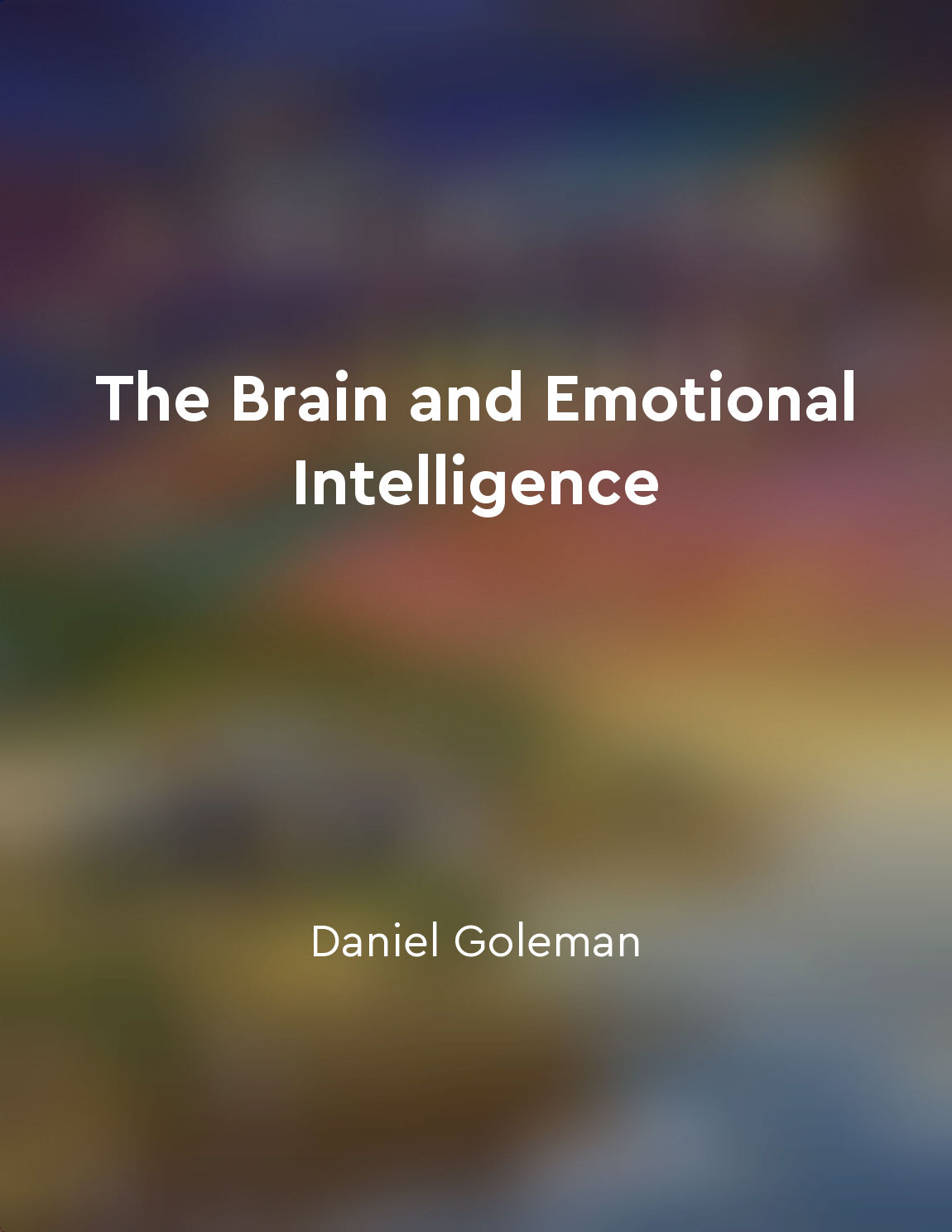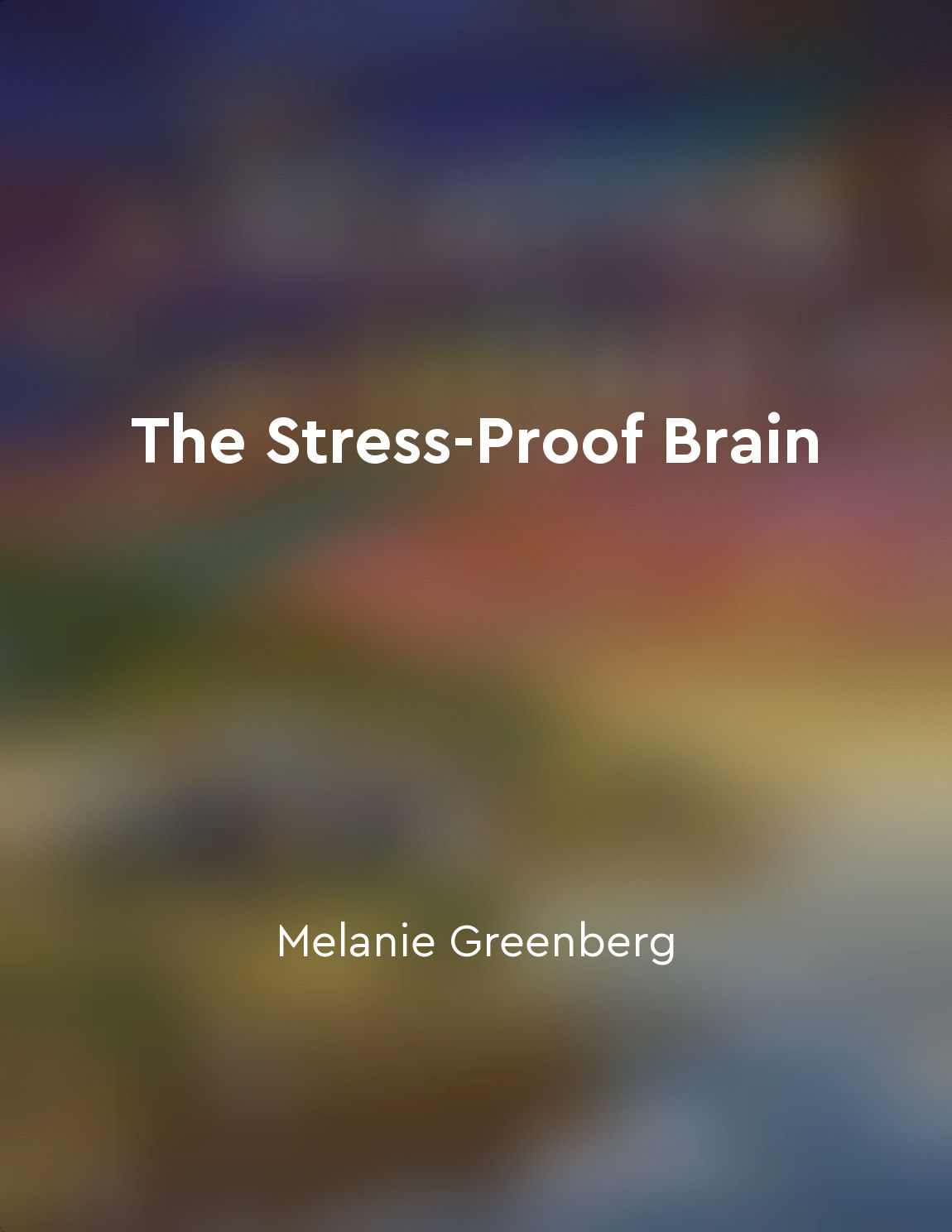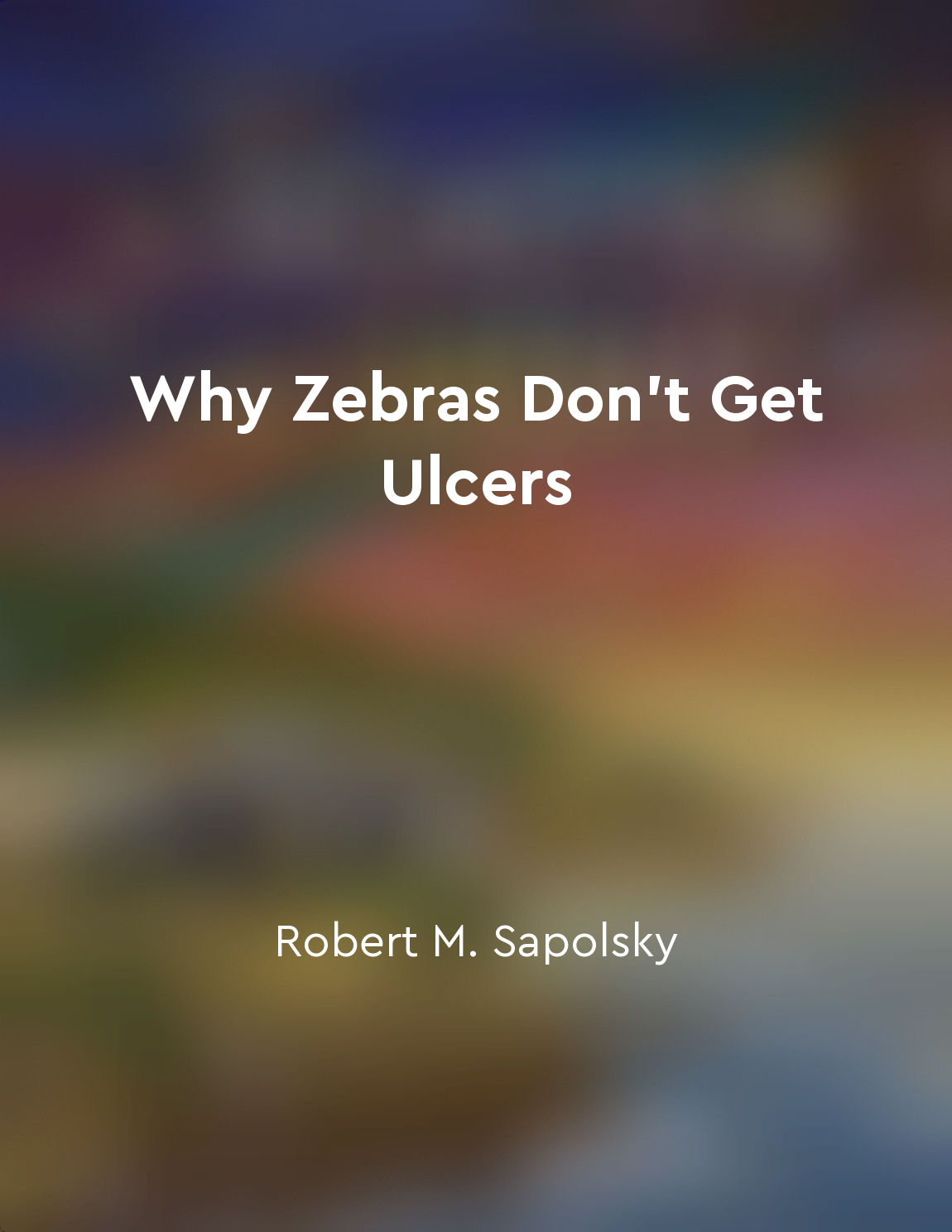Audio available in app
Stress affects the brain and memory from "summary" of Why Zebras Don't Get Ulcers by Robert M. Sapolsky
When stress strikes, it doesn't just impact our bodies - it also takes a toll on our brains. Our brains are incredibly sensitive to stress, with certain brain regions being particularly vulnerable. The hippocampus, for example, is a crucial structure for memory formation, and stress can wreak havoc on its functioning. When stress hormones flood the brain, they can impair the hippocampus's ability to create new memories, leading to forgetfulness and cognitive decline. In addition to affecting memory, stress can also alter the structure of the brain itself. Chronic stress has been shown to shrink the prefrontal cortex, the part of the brain responsible for decision-making, impulse control, and emotional regulation. This can result in decreased cognitive flexibility and increased impulsivity, making it harder to navigate the comp...Similar Posts
Mental health should be a top priority for overall wellness
In our quest for good health, we often focus on physical fitness and nutrition, overlooking the crucial role of mental health. ...
Emotional intelligence is vital in maintaining wellbeing
Emotional intelligence, the ability to recognize, understand, and manage our own emotions, is a crucial aspect of maintaining o...

Emotional intelligence is a key component of effective leadership
Effective leadership hinges on a leader's ability to understand and manage their emotions, as well as the emotions of others. T...

Super agers invest in their physical, mental, and emotional health
Super agers understand the importance of taking care of their physical, mental, and emotional health. They know that investing ...
Communication is key to building relationships
The bedrock of any relationship is communication. It is the glue that binds individuals together, allowing them to connect on a...
Connecting with nature can help us recenter and refocus
In our modern world, it is easy to become overwhelmed by the constant barrage of distractions and demands on our attention. We ...

The way we treat our bodies has a direct influence on our longevity
Our bodies are remarkable machines, finely tuned to function optimally when cared for properly. Every decision we make, from wh...
Incorporating variety ensures a range of nutrients
Incorporating a variety of foods into your diet is essential to ensure that you are receiving a wide range of nutrients. Each f...
Traumainformed care takes into account the individual's unique needs
Trauma-informed care is a critical component in understanding and addressing the impact of trauma on individuals. One key aspec...

Prioritizing selfcare can prevent burnout
Prioritizing self-care is essential for maintaining our mental and emotional well-being in today's fast-paced and demanding wor...

